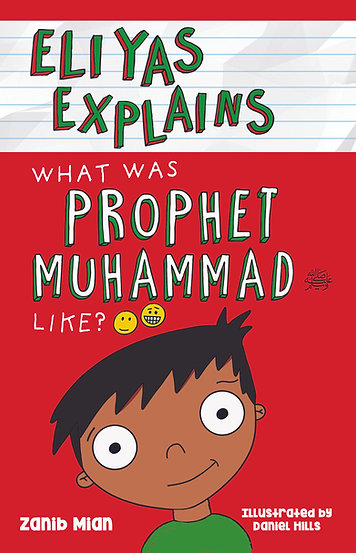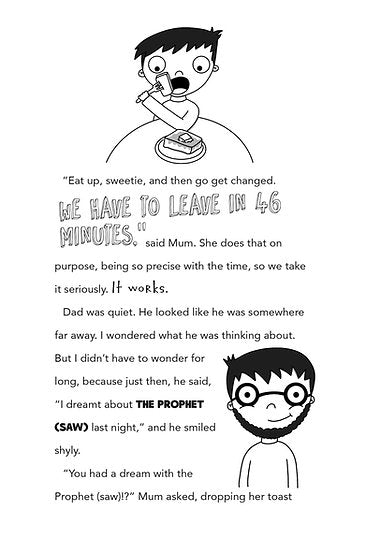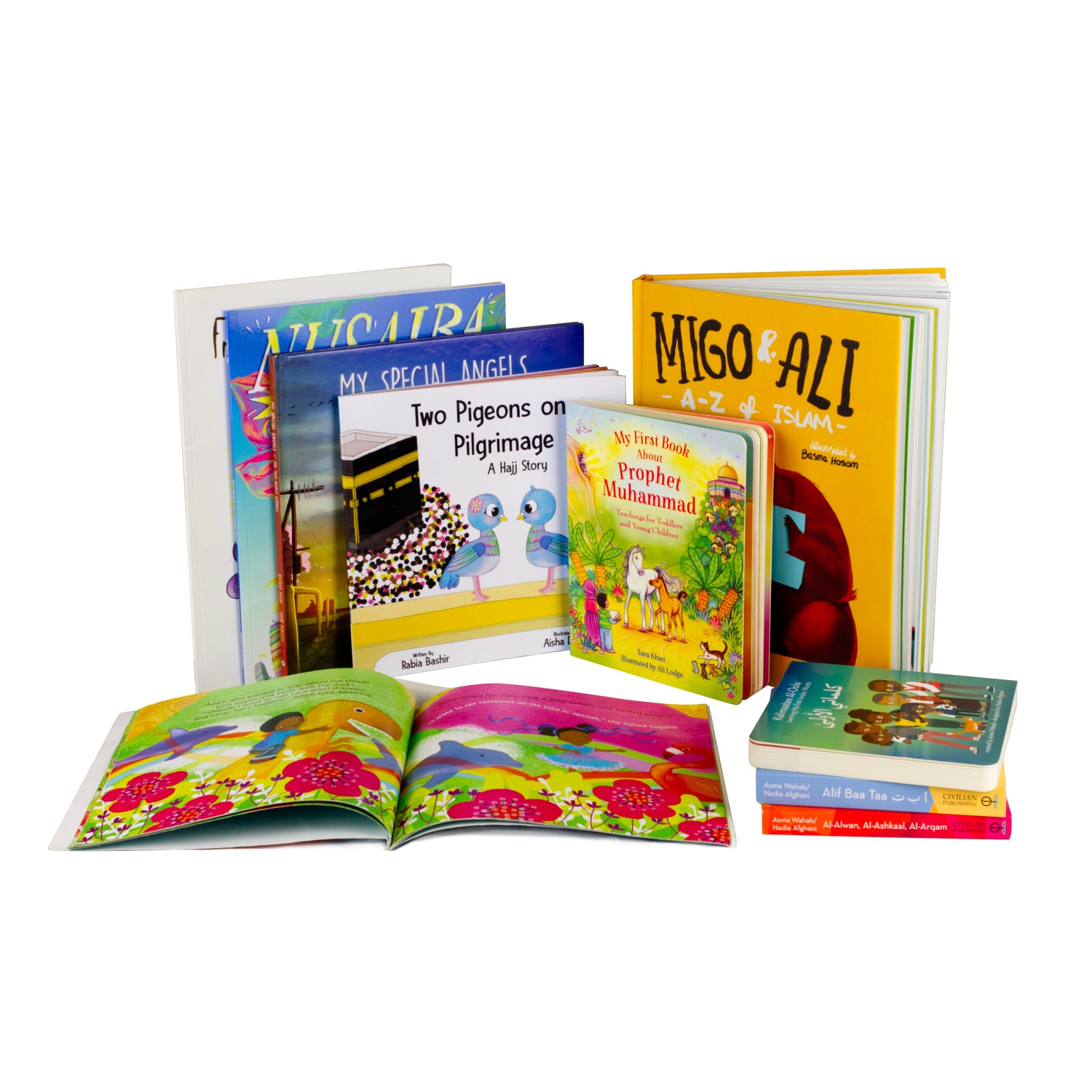By guest author Javid Patel.
As someone who memorized the entire Quran in my youth, it is a dream of mine, as I’m sure it is for many of you, to have my children be counted amongst the Huffaadh – the memorizers of the Quran.
“The one who recites the Quran and learns it by heart, will be with the noble righteous scribes (in Heaven) and the one who exerts himself to learn the Quran by heart and recites it with great difficulty, will have a double reward.”
(Narrated by al-Bukhaari, 4653; Muslim, 798)
Allah has given children an amazing ability to process and retain information. They are able to absorb everything, even the slightest information. This is one of the reasons children can learn faster than adults. By starting hifz early we can reap these benefits.
By giving an insight into my journey – which has only just begun – I hope to share with you my experiences so far, along with any tips and ideas that may help us to achieve this goal.
Please note: While these tips should be read as advice, it is important to point out that every child is different, so do not take these points strictly. It is crucial to adapt to each child. As parents, you should know your child best. I am sure that what works well with my son won’t even work well with my daughter! Likewise, as my son gets older, some techniques may no longer be effective and other methods will have to be tried and tested.
Introduction
I am a father of three children, with their ages ranging from 1 year to 4 years. For this article I will concentrate on my experience with my eldest child, Muhammad-Ameen. Muhammad-Ameen is a typical 4 year old…He can’t sit still, is extremely lively, and loves cars and animals. Getting him to sit down and concentrate is a task in itself.
The Experience so far…
Based on my experience so far, the below are the 5 tips which I think are most important to parents who share my ambition:
1) Have a routine and be consistent
This is the most important tip I can give to any parent, whether they are teaching their children hifz or anything else. I had a routine with my son right from when he was 2 years old. Before bed we will alternate between reading Arabic and English books together and then close the evening off with me reading Quran to him. A typical session would be anything between 30 minutes to an hour.
Having our session just before bed works best for us. Not only does he see it as an excuse to stay up, but thankfully his energy levels are down and he is usually calmer as a result. You should choose a time which suits you and your child’s schedule best.
Muhammad-Ameen cherishes this time because it is one of the rare moments in the day where he gets my full attention rather than having to share it with my two other children. And this wouldn’t have been possible if my wife wasn’t kind enough to look after the other two kids. My wife also covers this session during the days of the week when I have other commitments, so she’ll put the kids to bed and she’ll read to Muhammad-Ameen. This should be a joint effort and so agree an approach among you before-hand.
I can’t stress enough that however small your routine may be, be consistent with it! Not only will your kids learn discipline through this but this will create an expectation in your child which will help avoid catching your child off-guard. At the start it was very tough and it felt like a chore, but with time it became more natural. After that initial struggle, it’s my son now who reminds me about our reading time.
But please remember, children at that age will find it very hard to concentrate for long periods (even anything more than 10 minutes), so don’t worry if they aren’t listening 100%. Children pick up a great deal even through passive listening.
With Quran recitation, initially I started off reciting to him Surah Al-Fatiha and Surah Al-Baqara. Whilst this worked well, we found better success by switching to Juz Amma instead. The shorter verses made it easier for him to follow thereby aiding memorisation.
2) Expose them to Quran whenever you can
Whether on a journey, shopping, or just doing chores around the house, recite Quran to your child. Make sure they see you put time aside for the Quran, even if this is for a short time only. I found our 5-10 minute walk to nursery a great time to recite to him. I would recite and encourage him to recite with me.
Another practice I initiated through people’s practice is to have the Quran playing in the background while the kids are playing. As mentioned earlier, kids absorb absolutely everything, whether this is through active or passive listening. Hence, although they might be playing while the Quran is playing, you can be rest assured that they’re picking up the Quran.
We also leave a Quran recitation playing in their bedrooms overnight. Academic studies have suggested a link between the mind and what is played during sleep.
But there are 2 things to note here:
- Some scholars are against passive listening of the Quran, even for children. They obligate listening to the Quran attentively. Hence please seek the advice of a scholar or teacher you trust if you’re in doubt.
Upon enquiry with a local teacher, his response was that because they are children they wouldn’t be obligated to sit and listen attentively like adults would. - An important tip here is to always play the same reciter because this aids memorisation. Listening to the same reciter over and over helps the child pick up the rhythm of his recital which he will be able to mimic it naturally.
3) Recite loudly in your prayers
A useful practice which is often overlooked by parents is reciting salaah aloud in the presence of children. When you look at the hadith collections, in particular the ahaadith relating to the supplications in Salaah, you find 2 main methods the Companions learnt these. The first was through the companions asking questions or through explanations from the Prophet (SAW). And the second was through observation of the Prophet (SAW). The evidence for this is the hadith starts with “we heard the Prophet (SAW) say” such and such supplication. And this indicates that the Prophet (SAW) said it loud enough to be heard which you could assume was done as a purpose of teaching otherwise he would have prayed silently.
As such, we can practice the above with our children too. With 5 prayers in the day, of which 3 are recited aloud, there is little reason why children will not pick up Surah Fatiha by themselves as a minimum and any supplications. Add to this the sunan and nawaafil and this will provide ample opportunity for them to learn.
This is the least burdensome way of teaching your children the Quran. Whether praying alone, or as husband and wife, reciting aloud in prayer can benefit your child’s memorisation a great deal. My wife and I have witnessed the benefits of this practice with my son, and now even my daughter who both regularly recite along with us during salaah.
4) Make it enjoyable
There is no doubt that the Prophet Muhammad (SAW) was the best of teachers. He knew each of his companions and their levels, and despite having no teaching qualification he led them step by step gradually to become the best generation. And he would joke with his companions despite his lofty position such that the questions would ask ‘are you laughing and joking with us’.
And this is proof that you don’t need a teaching qualification or a teaching background to be the best teacher for your child. All you need to do is humble yourself to his level and understand him, and then build that connection with him just like the Prophet did with each and every companion. The Prophet was such that each companion thought he was the Prophet’s favourite. Once you have this then teach him with love and mercy. Remember that this is a means for your salvation as well as your child’s. The Prophet never raised his hand on anyone, not even his slave so be merciful on your child if he misbehaves or if he makes mistakes.
And then make learning enjoyable for the child like the Prophet did for the companions. The companions would take it in turns to go to work just so they could learn from the Prophet (SAW). The Prophet (SAW) employed various methods of teaching to reach out to the companions and you should do the same with your child. I would encourage using resources like the Juzz Amma sticker chart and the Juzz Amma sticker bookmark to reward the child for each surah memorised. This is sure to build some excitement into the process, and drive the child to completing their goal.
You should encourage your child to ask questions like the Prophet did because if you don’t give them the opportunity then they’ll ask others who may not have their best interests in heart.
A point to note here is that the Prophet only forbade too many questions because he feared revelation would come down in response and thus make it harder for his ummah but this fear does not exist anymore.
5) The Ultimate Aim
Ultimately the aim should be for your child to build an attachment to the Quran, whether this is through memorisation or otherwise. Keep your intentions pure and sincere. Lead your children by example. How can we expect them to succeed if we ourselves are not passionate about connecting with the Quran!
One point I cannot stress enough is to persevere! Many times we will feel demotivated because it is not a small task. This journey is more about how much effort we put in rather than our child. Even if you feel progress is slow, do not give up. This is a long-term exercise, and we should not expect results immediately.
Final comments
To conclude, I just want to remind the reader that children develop differently and no child is the same. As a parent you will soon learn what works well with your children and what doesn’t. Put in the effort, make dua, and realise that success is from Allah alone.
Please note that Hifz is not for everyone. So many scholars amongst the great, despite having memorized tonnes of ahaadith, could not memorise the Quran. But have confidence that Allah will reward you for your struggles. And in the end, you should know enough about your child to realise if he is capable of this mighty task or not.
Above are just some tips from mines and my son’s journey so far. It’s only begun but I hope you have found some benefit. InshaAllah in the near future we plan to extend our Quran reading sessions in the mornings also. Depending on how this goes, there may be a need to bring in an external teacher to build on this but this is more for the long term.
















